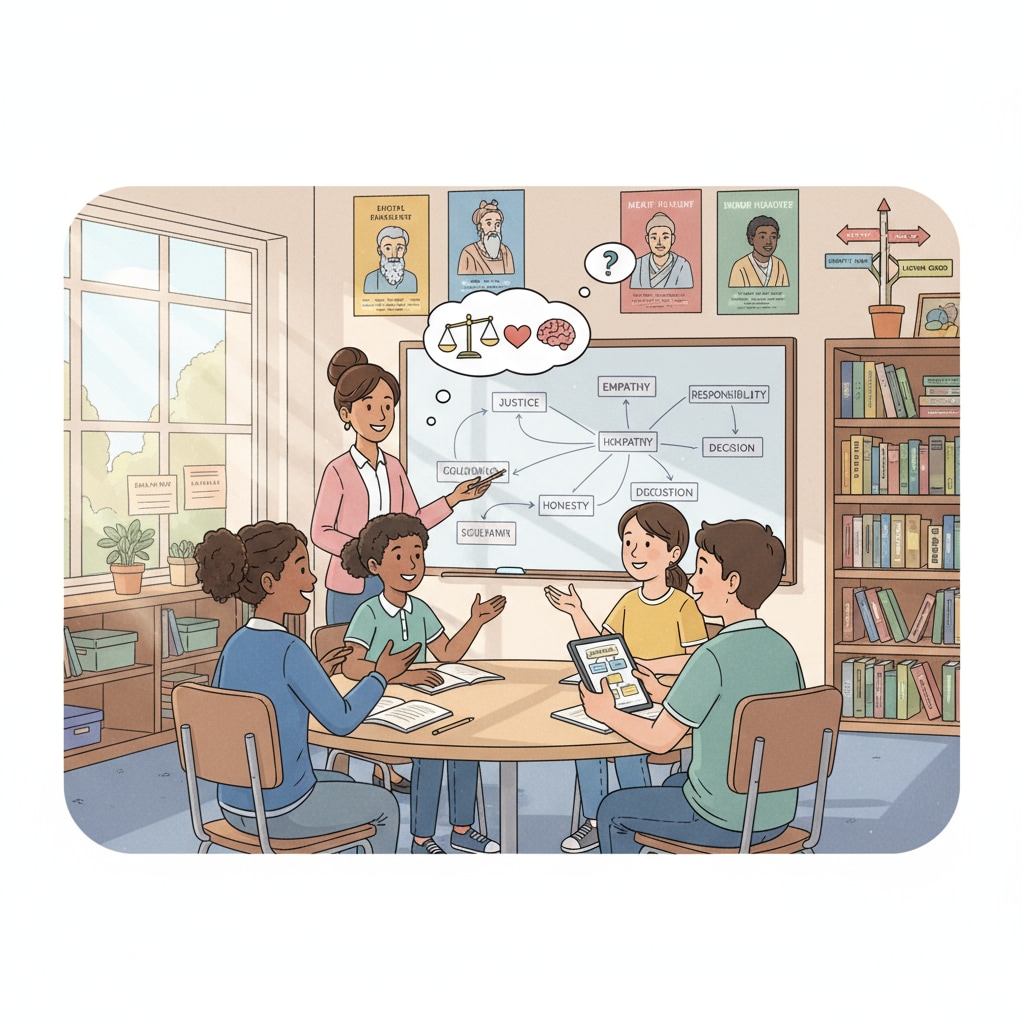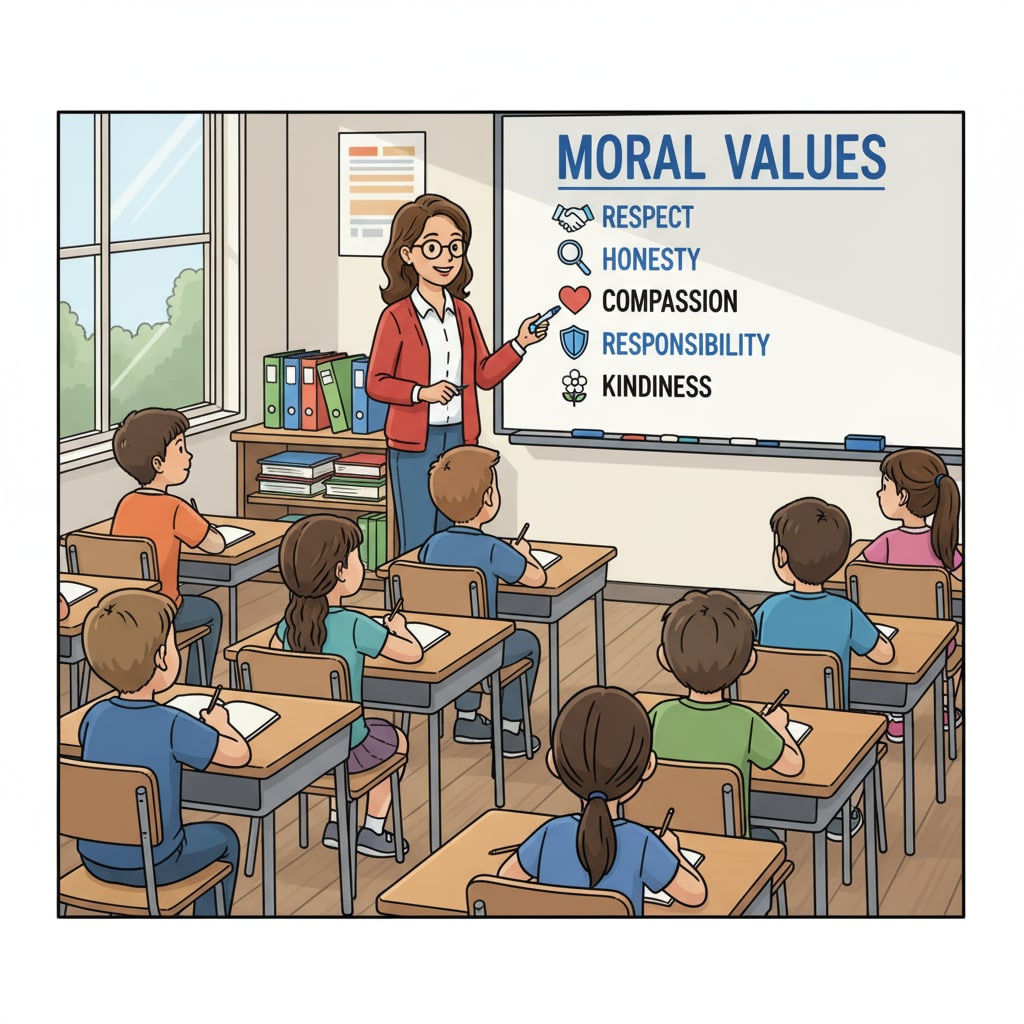Moral philosophy, ethics, empathy, and social responsibility are integral components that should be at the heart of education. In an era where individualism seems to be on the rise, integrating these elements into the K12 curriculum is not just a progressive idea but a necessity.

This article delves into the significance of making moral philosophy and ethics a cornerstone of K12 education and how it can help foster a generation of empathetic and socially responsible citizens.
The Need for Moral Philosophy and Ethics in Education
In modern society, the traditional values that once held communities together are being challenged. Young people are growing up in a world filled with complex moral dilemmas, from online ethics to global social issues. By introducing moral philosophy and ethics in schools, students can be equipped with the tools to analyze and navigate these situations. According to Ethics education on Wikipedia, ethical education helps students develop critical thinking skills, enabling them to distinguish right from wrong.

Cultivating Empathy through Moral Education
Empathy is the ability to understand and share the feelings of others. Moral philosophy and ethics can play a significant role in cultivating this trait. When students study different ethical theories, they are exposed to various perspectives on human behavior and values. This exposure broadens their worldview and helps them put themselves in others’ shoes. For example, studying the concept of utilitarianism, which focuses on the greatest good for the greatest number, can make students more aware of the impact of their actions on others. As a result, they are more likely to develop empathy and act in a way that benefits society as a whole. Empathy on Britannica further elaborates on how education can enhance this emotional intelligence.
Moreover, moral education often includes case studies and discussions of real – life moral issues. These activities encourage students to engage in empathetic conversations, where they can express their views and listen to others. This interactive process deepens their understanding of different people’s experiences and feelings.
In conclusion, making moral philosophy and ethics a mandatory part of K12 education is a powerful step towards creating a more empathetic and socially responsible society. By equipping students with the knowledge of moral principles and the ability to empathize, we are preparing them to be active and positive contributors to the world around them. It is time to recognize the value of these subjects and integrate them seamlessly into the educational framework for the betterment of future generations. Readability guidance: The use of short paragraphs and lists helps in summarizing key points. The passive voice and long sentences are kept to a minimum, and transition words are used throughout to enhance the flow of the article.


